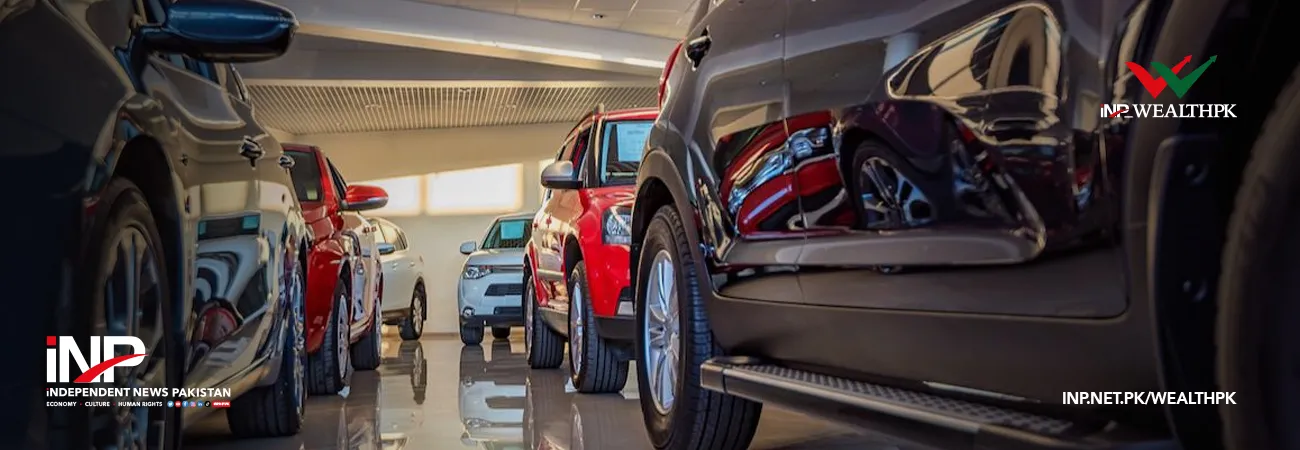INP-WealthPk
Arooj Zulfiqar
The Pakistan Automotive Manufacturers Association (PAMA) has reported an alarming 55.55% year-on-year drop in the passenger car sales for the first half of Fiscal Year 2024, reports WealthPK. The most recent data underscores a significant decrease in sales, which reached only 30,662 units in 1HFY24, compared with 68,912 units recorded during the same period in the previous fiscal year. In spite of a slight 0.84% month-on-month increase in sales, the sector experienced a substantial 64.33% year-on-year decline when compared to the figures from December 2022. These figures paint a grim picture, with the total production of cars plummeting by 56.87% year-on-year, standing at 30,786 units in 1HFY24. In December, there was a significant 55.8% month-on-month rise in production, totalling 6,654 units. Nevertheless, this still signifies a considerable 51.64% year-on-year decrease when contrasted with the production figures of December 2022.
Talking to WealthPK, Abdul Waheed Khan, a senior representative of PAMA, emphasized the significance of the automobile sector in contributing to the economy by generating employment opportunities and adding to the country's GDP. However, a significant downturn in car sales reflects a complex interplay of economic challenges that have been brewing for some time. He said, “Several factors, including high inflation, currency depreciation, political uncertainty, and supply chain disruptions, have converged to create a formidable headwind for the industry. “The primary drivers of the decline are high inflation and currency depreciation. These factors have significantly eroded the consumers' purchasing power, making big-ticket items like cars less affordable. “Inflation has become a persistent concern in Pakistan's economic landscape. Continuous rise in prices has significantly eroded the purchasing power of consumers, making substantial purchases like automobiles less appealing,” he said. He said, “A comprehensive solution was required which must involve implementing monetary policies to curb inflation and stabilize the currency.
The government must work towards achieving economic stability, possibly through fiscal reforms and prudent monetary management.” He added, “Low demand, another significant contributor to the sector's downturn, necessitates targeted fiscal incentives and subsidies to stimulate consumer interest. Favourable financing options with attractive terms and interest rates can encourage car purchases. “Additionally, the recent global supply chain disruptions have further strained the industry. As the industry relies on a complex network of suppliers and manufacturers, any disruptions to the supply chain can have cascading effects, affecting production schedules and exacerbating existing issues,” he said. “Collaborative efforts between the government and industry stakeholders are essential to address these disruptions, possibly through diversifying supply sources and investing in resilient supply chain practices. Embracing sustainability by promoting the production and adoption of electric and hybrid vehicles can also present new opportunities for growth in the automotive sector,” he added.
Credit: INP-WealthPk













